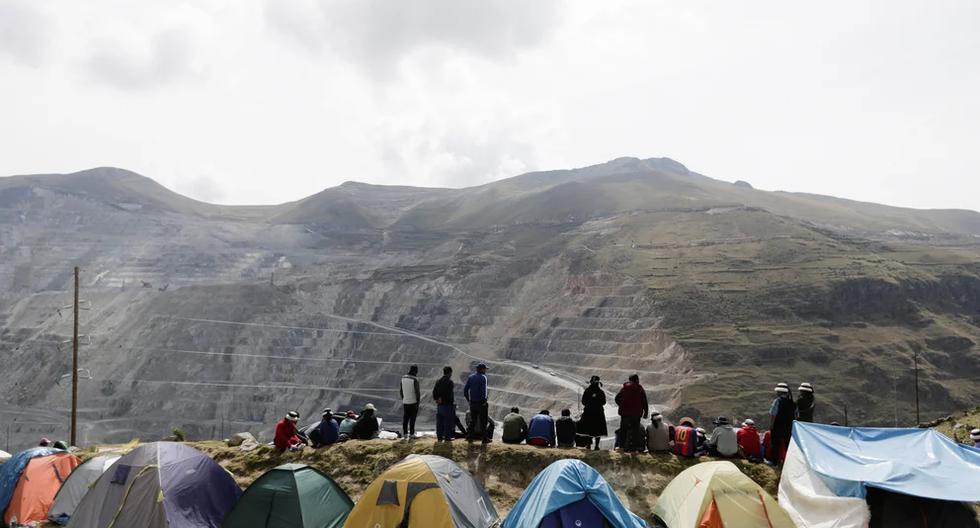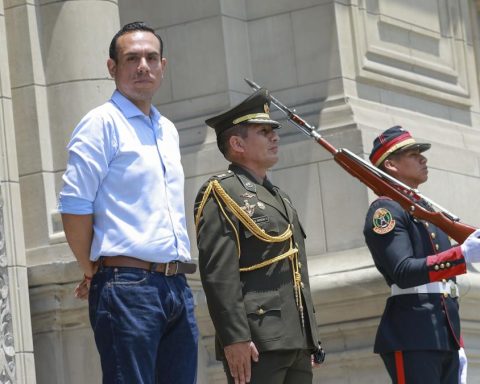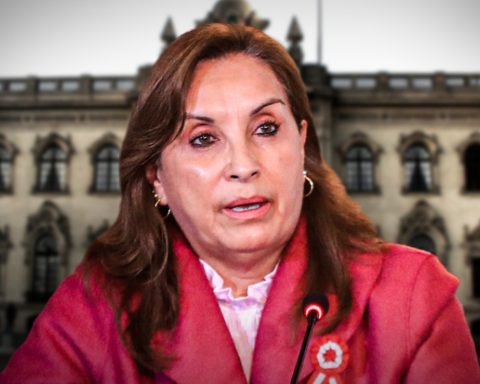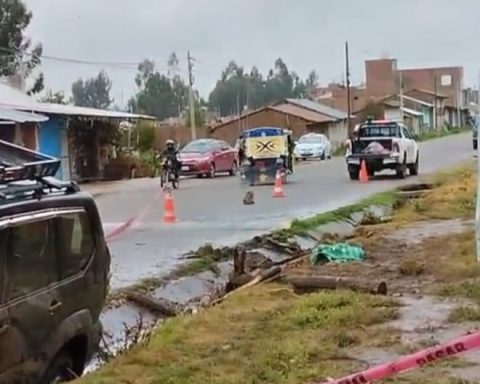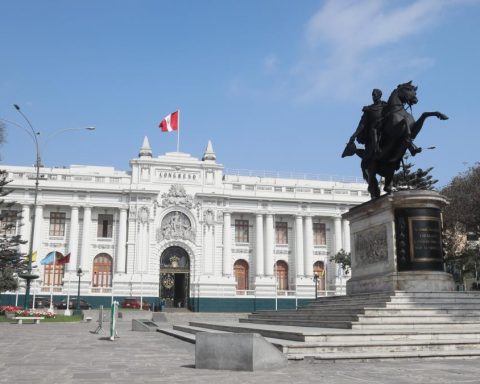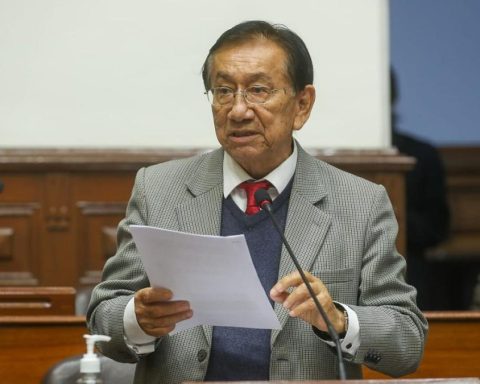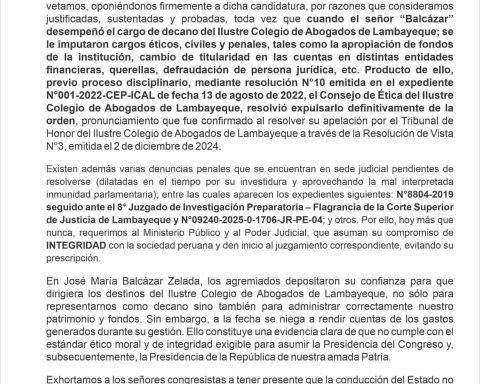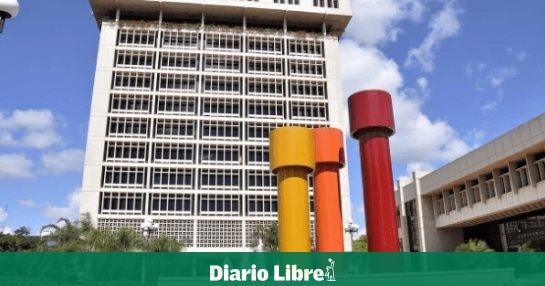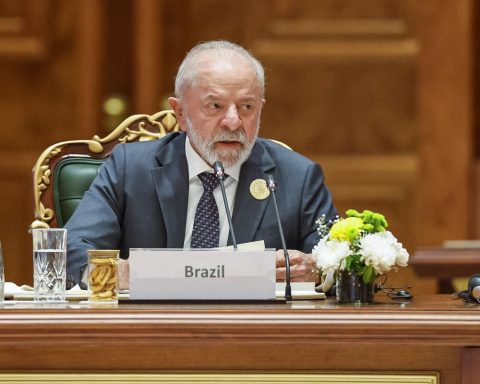The Tax Council (CF) issued its opinion on Monday on the 2022-2025 Macroeconomic Projections Update Report (IAPM), in which it noted that the growth rate of the economy forecast for 2022 (3.6%) presents an optimistic bias.
“Achieving it will depend mainly on avoiding a drop in private investment, in a context of falling expectations of economic agents and an increase in social conflicts around the mining sector, which have been affecting production in the sector.”, he detailed.
He indicated that for the medium term, the downward revision of local macroeconomic forecasts is considered appropriate, since these are consistent with the estimates regarding potential growth made prior to COVID-19.
Likewise, the CF observed with concern the increase in mining conflicts and considered that they are a latent risk for economic growth in the short and medium term.
“Since the beginning of the year, stoppages have been recorded at the Las Bambas and Cuajone mines (Southern), which together represent 20% of national copper production, for a total of 87 days, with an estimated daily fiscal cost of US$4 million and US$ 0.9 million, respectively“, he claimed.
In this way, he urged the relevant authorities to strengthen dialogue, act promptly to resolve mining conflicts and avoid further stoppages of mining production, as well as the postponement of the entry into production of new projects.
“It is necessary to generate the necessary conditions to attract greater investment in mining exploration, in a context of high mineral prices, which would guarantee a new investment and mining production cycle beyond the projection horizon of the IAPM”, he said in the letter.
Otherwise, the Fiscal Council warned that in the coming years there are downside risks, since medium-term investment is based on mining projects that have postponed their start and are currently in the pre-feasibility stage.
In order to sustain economic growth, the entity specified that it is essential to create the conditions for these projects to start operations according to the established schedule.
Additionally, it believes it is necessary to resume, update and accelerate the implementation of the National Competitiveness and Productivity Plan, in order to diversify the sources of medium and long-term economic growth.
public revenue
Regarding the projection of public revenues, the Fiscal Council suggested maintaining a prudent attitude in the face of the increase in revenues of a transitory nature, especially those linked to the prices of export raw materials, and avoiding policy measures that reduce the collection of less volatile revenues. , like the VAT.
He explained that the good results of the collection of 2022 are due to the increase in income associated with natural resources, which would be reduced by the fiscal cost of the ISC tax exemptions for fuels and VAT on food and by the increase in returns. tax.
In particular, it shows concern about the adoption of tax exemptions as policy measures to control inflation, which are contrary to the fiscal policy guidelines established in the Multiannual Macroeconomic Framework and the measures implemented to rationalize tax benefits, beyond their doubtful effectiveness.
“In the medium term, the projection of income may have an optimistic bias, since it depends on maintaining the income associated with mining at stable levels and on the reduction of tax refunds below recent values.”, he referred.
Non-financial expenses
Regarding non-financial expenses, the CF reiterated that the projections included in the IAPM may be overestimating public investment and underestimating current spending.
Regarding the projection of public investment, he pointed out that reaching the figures projected for 2022 will require a significant growth in the pace of execution compared to what was registered in the first months of the year.
Regarding current spending, he maintained that its evolution will require a constant reduction, as a percentage of GDP, in the areas of salaries and transfers.
“Public investment is exposed to risks due to the first year of management of subnational governments in 2023 and due to the end of the reconstruction process, while current spending is exposed to upward risks if spending pressures are not controlled, such as those derived from the collective bargaining processes in the public sector and the new rules for the return of money from Fonavi”, he narrowed down.
Reduce expenses
He added that in a context where income is increasing due to transitory factors and COVID-19 spending pressures should be reduced. In this sense, he stressed that the projection of the fiscal deficit contemplated in the IAPM may be more demanding in the short term.
“As a consequence of the reduction in the fiscal deficit, the trajectory of public indebtedness should also be reduced. In the short term, debt reduction is consistent with changes in macrofiscal forecasts, but in the medium term, debt reduction will depend on the government’s ability to generate primary surpluses.“, Held.
He mentioned that maintaining the commitment to reduce the levels of public debt to the levels provided for in Bill No. 1763/2021-PE and in the IAPM will be one of the greatest challenges of fiscal policy for the coming years and will require implementing measures that guarantee compliance with the path of fiscal consolidation.
“The CF reiterates that the commitment to reduce the public debt limit is appropriate, but reaffirms that an exhaustive review of the calibration of fiscal rules is necessary”, he replied.
He also recalled that the Peruvian economy has suffered two adverse shocks of considerable magnitude (the El Niño Costero Phenomenon in 2017 and the COVID-19 pandemic), for which he reiterates the need to adopt a prudent stance in managing public finances.
In this sense, in the opinion of the CF, fiscal policy actions should prioritize the restitution of the FEF (Fiscal Stabilization Fund), depleted by the pandemic and partially restored recently (0.6% of GDP), as well as avoiding inefficient measures, such as be the recent tax exemptions and non-targeted expenses.
On an international level
The Fiscal Council considered reasonable the forecasts for the international macroeconomic environment contemplated in the IAPM, which show a deterioration as a result of higher global inflation generated, mainly, by the war between Russia and Ukraine, and a more accelerated withdrawal of monetary stimuli international.
Regarding the forecasts on the prices of raw materials foreseen in the IAPM, the CF notes that these would remain at historically high levels.
Although these price levels are lower than those expected by different analysts, the entity suggests considering even more conservative projections regarding the medium-term prices of raw materials, to avoid the risk of oversizing the public sector budget.
